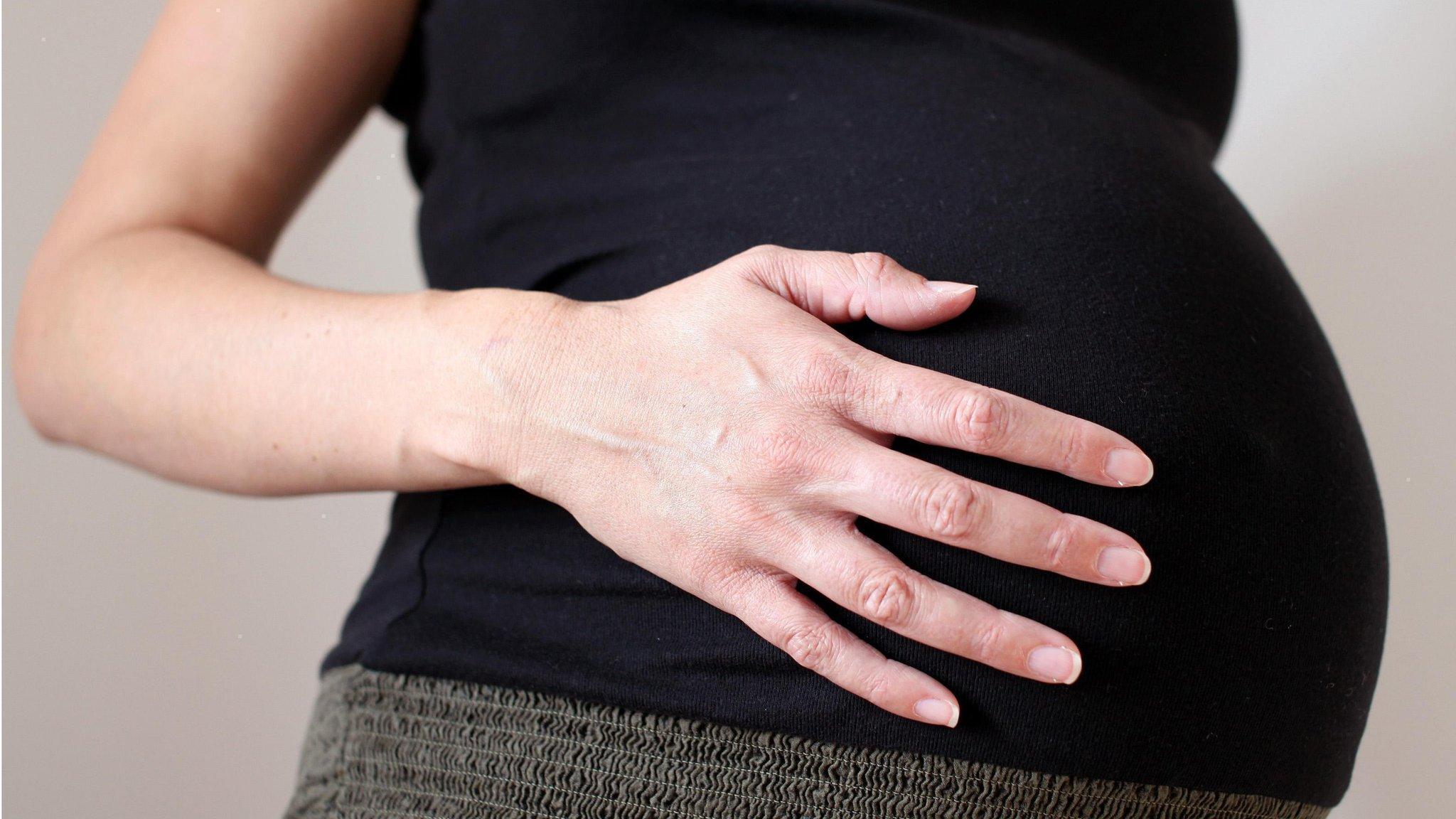Pregnant at 65: Miracle of medicine
- Published
- comments
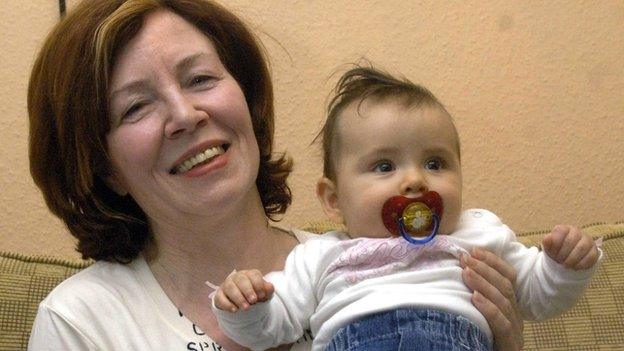
Annegret Raunigk, then 55, posing with her youngest daughter, Leila
Annegret Raunigk, 65, is reportedly due to give birth to quadruplets.
The German primary school teacher is said to be in her 21st week of pregnancy and feeling "fit".
If her pregnancy progresses well, as hoped, Ms Raunigk will be the oldest to give birth to quadruplets, but not the oldest mum to give birth to a child - that official record is held by Maria del Carmen Bousada Lara, who give birth to twins in Spain in 2006, at the age of 66, although some say it belongs to Omkari Panwar, who is believed to have been 70 when she gave birth to twins in India in 2008.
How are these "elderly" pregnancies medically possible?

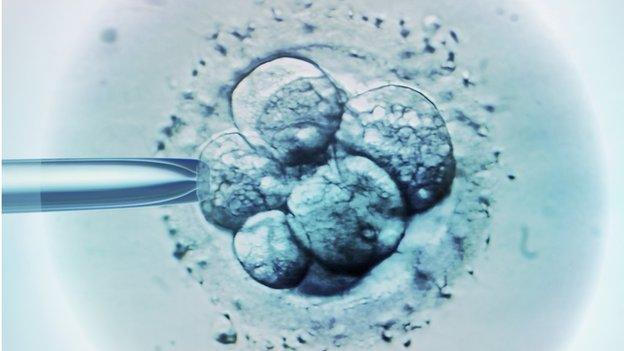
Donor eggs
Women who have gone through the menopause will not be able to get pregnant without help.
They will need to use eggs from a donor - or a frozen stash of their own eggs - to be able to conceive.
For women, fertility declines with age, and this is fairly rapid after the age of 35, although it will vary for the individual.
It's all down to eggs.
Girls are born with all of the eggs they will ever have, and after puberty they begin to lose them as they menstruate.
By the age of about 40, a woman's supply of good quality eggs will be dwindling.

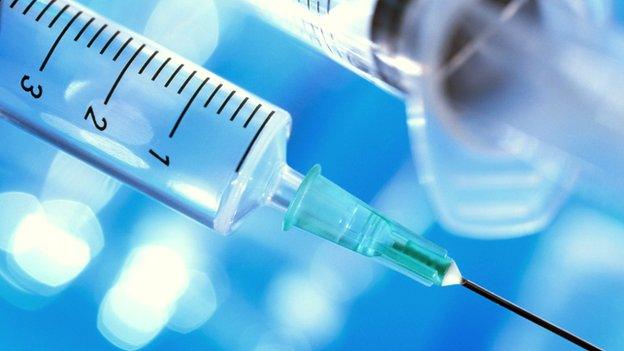
Hormones
Before the fertilised donor egg can be used, doctors will need to make sure the woman's womb is ready to receive and nurture it.
Doctors can give the woman a short course of oestrogen therapy to thicken the lining of her womb and prepare the environment for the embryo.
Once the fertilised egg has been transferred into the womb, the woman will need to take more hormones to support the pregnancy - unlike younger women with fully functioning ovaries, she won't be able to make the hormones herself.
Dr Sue Avery, a fertility expert at the Birmingham Women's Fertility Centre and a member of the British Fertility Society, says: "It's pretty much the same process as we would use for a younger woman who, for some reason, has had to have her ovaries removed."

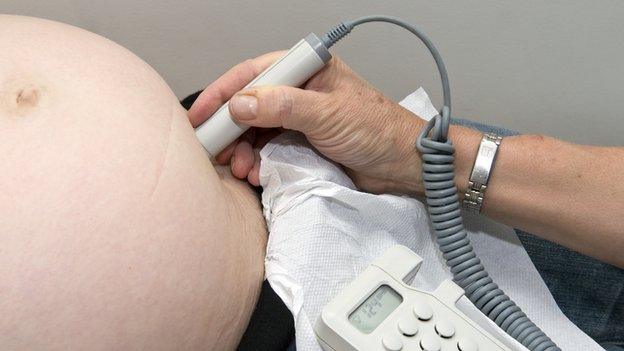
Close monitoring
Dr Avery says older expectant mothers do need a careful watch because they are at higher risk of pregnancy-related complications such as high blood pressure and gestational diabetes.
But when the donor egg comes from a younger woman, this may change things.
Dr Avery says: "Although the woman is older, because the eggs are from a younger woman and the pregnancy is supported hormonally, it's like a younger person's pregnancy really."
A US study of 101 older expectant mothers, external found the risk of pregnancy complications for women over 50 who became pregnant via egg donation were similar to those of younger women conceiving in this way.
Ultimately, it comes down to how physically fit the mother is, not just her age.
Arguably, the most significant risk factor in Ms Raunigk's pregnancy is the number of babies she is carrying, says Dr Avery.
Multiple pregnancies - twins, triplets, quads or more - are always deemed higher risk by doctors.
It increases the likelihood of premature delivery and smaller birth weight, as well as dangerous complications for the mother, including high blood pressure and pre-eclampsia.

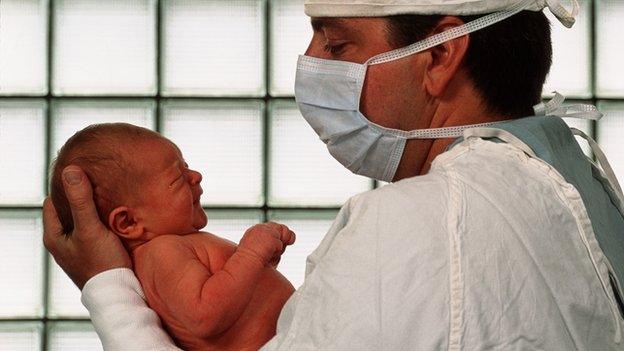
Caesarean delivery
Carrying four babies means it is unlikely that Ms Raunigk will give birth naturally, and she will instead deliver by Caesarean section.
The 65-year-old is already a mother to 13 other children - she gave birth to her youngest daughter a decade ago.
Her physician, Dr Kai Hertwig, was quoted by German Broadcaster RTL as saying that quadruple pregnancies were always a strain, but everything was going well for Ms Raunigk.

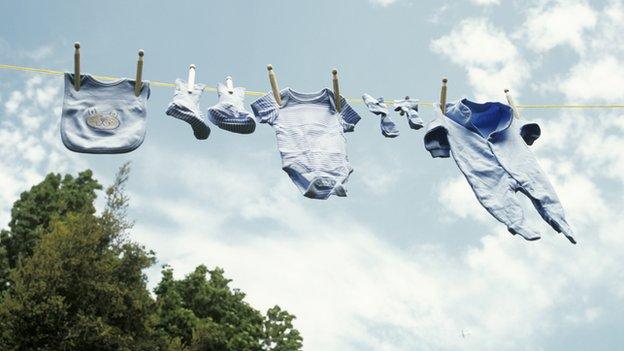
Aftercare
Like any new parent, for the first few months Ms Raunigk will face the challenge of coping with little sleep while having to change lots of nappies.
Then there will be the future to plan for.
Dr Avery says: "If she has four babies at 65, she will soon be chasing round four toddlers. Good luck to her!
"Even if you are fit, you do not have the same energy at the age of 45 as at 25, let alone at 65."
Dr Avery says few clinics in the UK offer IVF treatment to women over the age of 50, for social reasons.
"We have to consider the welfare of the child when making a decision," she says.
She says it is up to individual clinics to decide if a woman, who at the age of 65 might reasonably expect to live for another 20 years or so, should be eligible for treatment.
"There is no regulation that says you can't treat a woman older than a certain age," she says.
"There is no upper age, but you will need to take into account the welfare of the child."
- Published25 March 2015
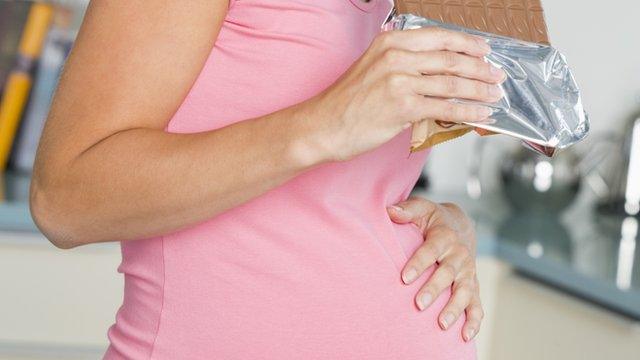
- Published3 January 2013
